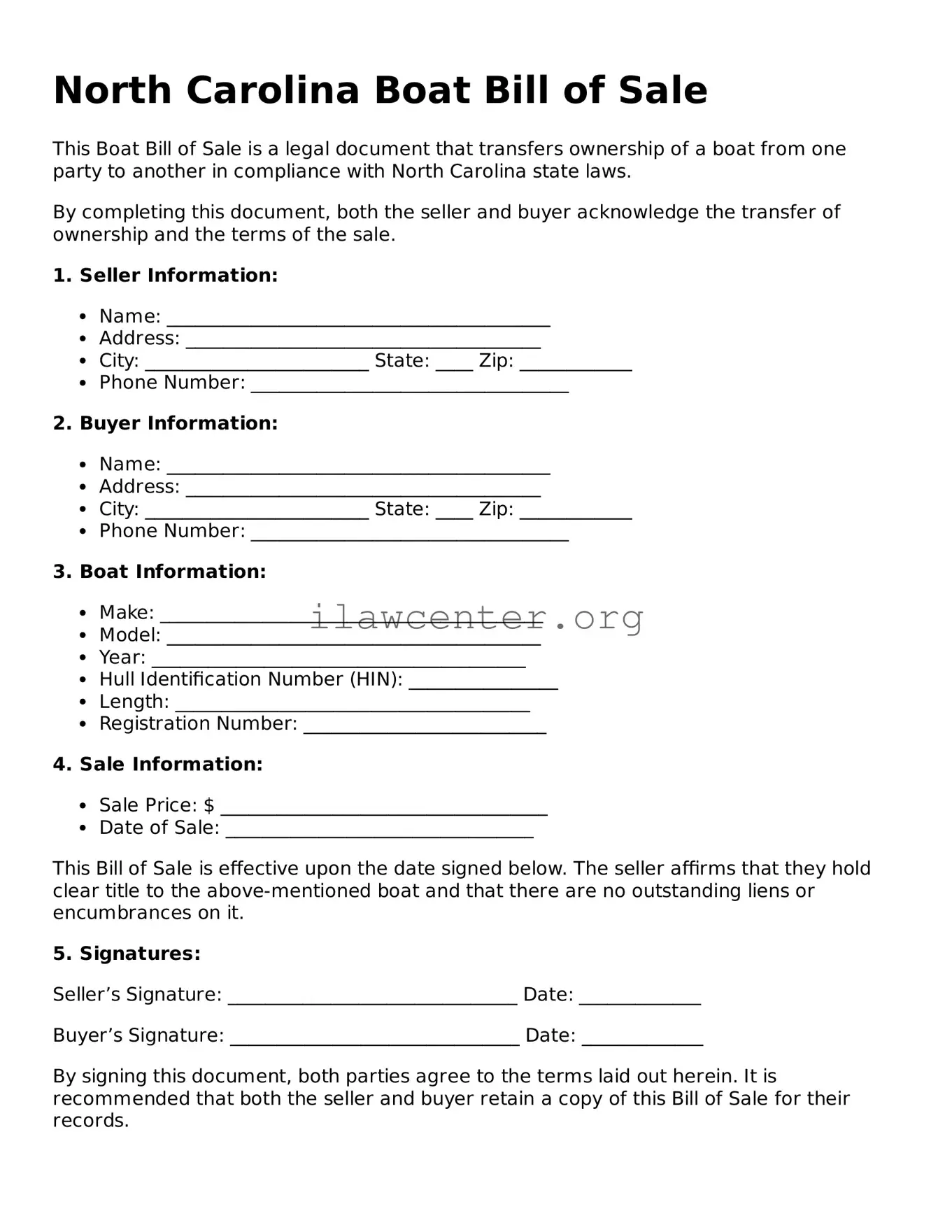What is a North Carolina Boat Bill of Sale?
A North Carolina Boat Bill of Sale is a legal document that serves as evidence of the sale or transfer of ownership of a boat. It outlines the details of the transaction between the buyer and seller, ensuring that both parties have a clear record of the agreement. This document can also be used for registration purposes.
What information is included in the Bill of Sale?
The Bill of Sale typically includes the names and addresses of the buyer and seller, the description of the boat (including the make, model, year, hull identification number, and any other identifying features), the sale price, and the date of the transaction. Both parties may also sign the document to validate the agreement.
Is the Bill of Sale required for boat registration?
Yes, a Bill of Sale is often required when registering a boat in North Carolina. It proves that the buyer is now the legal owner of the vessel. Without this document, registration authorities may not process the registration application.
Can I create my own Bill of Sale?
Yes, you can create your own Boat Bill of Sale as long as it contains all the necessary details mentioned earlier. It’s important to ensure that both parties sign and date the document. However, using a standardized form may streamline the process and ensure that all required information is included.
Is it mandatory for the Bill of Sale to be notarized?
No, notarization is not required for a Bill of Sale in North Carolina. However, having the document notarized can provide an extra level of security and authenticity, which might be beneficial if disputes arise later on.
Do I need to pay taxes when buying or selling a boat?
Yes, there may be tax implications when buying or selling a boat in North Carolina. Sellers may be subject to state and local tax regulations. Buyers frequently must pay a sales tax when registering the boat. It's advisable to check with the North Carolina Department of Revenue for specific details.
Where can I obtain a standard Bill of Sale form?
You can find standard Bill of Sale forms at various locations. Many boating organizations, attorney offices, and online legal form providers offer templates. Additionally, the North Carolina Wildlife Resources Commission provides resources that may include a Bill of Sale form tailored for boats.
What if the boat has a lien against it?
If there is a lien on the boat, it is crucial to address it before completing the sale. The seller must disclose any outstanding liens to the buyer. Both parties should ensure that the lien is cleared or that an agreement is in place regarding its settlement before finalizing the transaction.
What should I do if I lose my Bill of Sale?
If you lose your Bill of Sale, it's important to act quickly. Try to contact the seller (if you are the buyer) or the buyer (if you are the seller) to create a duplicate. You can also describe the loss in writing and keep a record of it as proof until a new document is prepared.
